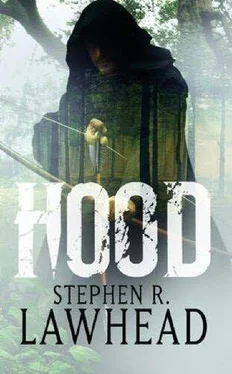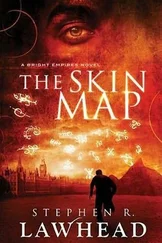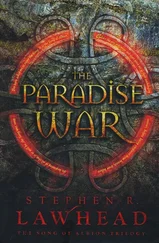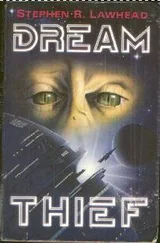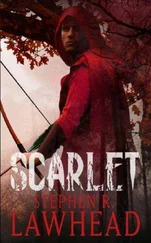Stephen Lawhead - Hood
Здесь есть возможность читать онлайн «Stephen Lawhead - Hood» весь текст электронной книги совершенно бесплатно (целиком полную версию без сокращений). В некоторых случаях можно слушать аудио, скачать через торрент в формате fb2 и присутствует краткое содержание. Жанр: Фэнтези, на английском языке. Описание произведения, (предисловие) а так же отзывы посетителей доступны на портале библиотеки ЛибКат.
- Название:Hood
- Автор:
- Жанр:
- Год:неизвестен
- ISBN:нет данных
- Рейтинг книги:4 / 5. Голосов: 1
-
Избранное:Добавить в избранное
- Отзывы:
-
Ваша оценка:
- 80
- 1
- 2
- 3
- 4
- 5
Hood: краткое содержание, описание и аннотация
Предлагаем к чтению аннотацию, описание, краткое содержание или предисловие (зависит от того, что написал сам автор книги «Hood»). Если вы не нашли необходимую информацию о книге — напишите в комментариях, мы постараемся отыскать её.
Hood — читать онлайн бесплатно полную книгу (весь текст) целиком
Ниже представлен текст книги, разбитый по страницам. Система сохранения места последней прочитанной страницы, позволяет с удобством читать онлайн бесплатно книгу «Hood», без необходимости каждый раз заново искать на чём Вы остановились. Поставьте закладку, и сможете в любой момент перейти на страницу, на которой закончили чтение.
Интервал:
Закладка:
Thus, he learned at an early age that since he could never please his father, he might as well please himself. That is the course he had pursued ever since-much to his father's annoyance and eventual despair.
So now the king was dead. From the day the Conqueror seized the throne of the English overlords, Brychan had resisted. Having to suffer the English was bad enough; their centuries-long presence in Britain was, to him, still a fresh wound into which salt was rubbed almost daily. Brychan, like his Celtic fathers, reckoned time not in years or decades, but in whole generations. If he looked back to a time when Britain and the Britons were the sole masters of their island realm, he also looked forward to a day when the Cymry would be free again. Thus, when William, Duke of Normandie, settled his bulk on Harold's throne that fateful Christmas day, Rhi Brychan vowed he would die before swearing allegiance to any Ffreinc usurper.
At long last, thought Bran, that oft-repeated boast had been challenged-and the challenge made good. Brychan was dead, his warriors with him, and the pale high-handed foreigners ran rampant through the land.
How now, Father? Bran reflected bitterly. Is this what you hoped to achieve? The vile enemy sits on your throne, and your heir squats in the pit. Are you proud of your legacy?
It was not until the following morning that Bran was finally released and marched to his father's great hall. He was brought to stand before a slender young man, not much older than himself, who, despite the mild summer day, sat hunched by the hearth, warming his white hands at the flames as if it were the dead of winter.
Dressed in a spotless blue tunic and yellow mantle, the thin-faced fellow observed Bran's scuffed and battered appearance with a grimace of disgust. "You will answer me-if you can, Briton," said the young man. His Latin, though heavily accented, could at least be understood. "What is your name?"
The sight of the fair-haired interloper sitting in the chair Rhi Brychan used for a throne offended Bran in a way he would not have thought possible. When he failed to reply quickly enough, the young man who, apparently, was lord and leader of the invaders rose from his seat, drew back his arm, and gave Bran a sharp, backhanded slap across the mouth.
Hatred leapt up hot and quick. Bran swallowed it down with an effort. "I am called Gwrgi," he answered, taking the first name that came to mind.
"Where is your home?"
"Ty Gwyn," Bran lied. "In Brycheiniog."
"You are a nobleman, I think," decided the Norman lord. His downy beard and soft dark eyes gave him a look of mild innocencelike a lamb or a yearling calf.
"No," replied Bran, his denial firm. "I am not a nobleman."
"Yes," asserted his inquisitor, "I think you are." He reached out and took hold of Bran's sleeve, rubbing the cloth between his fingers as if to appraise its worth. "A prince, perhaps, or at least a knight."
"I am a merchant," Bran replied with dull insistence.
"I think," the Ffreinc lord concluded, "you are not." He gave his narrow head a decisive shake, making his curls bounce. "All noblemen claim to be commoners when captured. You would be foolish to do otherwise."
When Bran said nothing, the Norman drew back his hand and let fly again, catching Bran on the cheek, just below the eye. The heavy gold ring on the young man's finger tore the flesh; blood welled up and trickled down the side of his face. "I am not a nobleman," muttered Bran through clenched teeth. "I am a merchant."
"A pity," sniffed the young lord, turning away. "Noblemen we ransom-beggars, thieves, and spies we kill." He nodded to his attending soldiers. "Take him away."
"No! Wait!" shouted Bran. "Ransom! You want money? Silver? I can get it.
The Ffreinc lord spoke a word to his men. They halted, still holding Bran tightly between them. "How much?" inquired the young lord.
"A little," replied Bran. "Enough."
The Norman gathered his blue cloak around his shoulders and studied his captive for a moment. "I think you are lying, Welshman." The word was a slur in his mouth. "But no matter. We can always kill you later."
He turned away and resumed his place by the fire. "I am Count Falkes de Braose," he announced, settling himself in the chair once more. am lord of this place now, so mind your tongue, and we shall I yet come to a satisfactory agreement."
Bran, determined to appear pliant and dutiful, answered respectfully. "That is my fervent hope, Count de Braose."
"Good. Then let us arrange your ransom," replied the count. "The amount you must pay will depend on your answers to my questions.
"I understand," Bran said, trying to sound agreeable. "I will answer as well as I can."
"Where were you and that priest going when my men found you on the road?"
"We were returning from Lundein," replied Bran. "Brother Ffreol had business with the monastery there, and I was hoping to buy some cloth to sell in the markets hereabouts."
"This business of yours compelled you to ride at night. Why?"
"We had been away a long time," answered Bran, "and Brother Ffreol was anxious to get home. He had an important message for his bishop, or so he said,"
"I think you were spies," de Braose announced.
Bran shook his head. "No."
"What about the other one? Was he a merchant, too?"
"Iwan?" said Bran. "Iwan is a friend. He rode with us to provide protection.
"A task at which he failed miserably," observed the count. "He escaped, but we will find him-and when we do, he will be made to pay for his crimes."
Bran took this to mean he had injured or killed at least one of the marchogi in the skirmish on the road.
"Only a coward would kill a priest," observed Bran. "Since you require men to pay for their crimes, why not begin with your own?"
The count leaned forward dangerously. "If you wish to keep your tongue, you will speak with more respect." He sat back and smoothed his tunic with his long fingers. "Now then, you knew my men were attacked by your people on that same road some days ago?"
"I was in Lundein, as I said," Bran replied. "I heard nothing of it."
"No?" wondered the count, holding his head to one side. "I can tell you the attack was crushed utterly. The lord of this place and his pitifully few warriors were wiped out."
"Three hundred against thirty," Bran replied, bitterness sharpening his tone. "It would not have been difficult."
"Careful," chided the count. "Are you certain you knew nothing of this battle?"
"Not a word," Bran told him, trying to sound both sincere and disinterested. "But I know how many men the King of Elfael had at his command,"
"And you say you know nothing of the priest's business?"
"No. He did not tell me-why would he? I am no priest," Bran remarked. "Churchmen can be very secretive when it suits them."
"Could it have something to do with the money the priest was carrying?" inquired the count. He gestured to a nearby table and the four bags of coins lying there. Bran glanced at the table; the thieving Ffreinc had, of course, searched the horses and found the money Bran had hidden amongst the provisions.
"It is possible," allowed Bran. "I did not think priests carry so much money otherwise."
"No," agreed de Braose, "they do not." He frowned, apparently deciding there was nothing more to be learned. "Very well," he said at last, "about the ransom. It will be fifty marks."
Bran felt bitter laughter rising in his throat. Cardinal Ranulf wanted six hundred; what was fifty more?
"Fifty marks," he repeated. Determined not to allow the enemy the pleasure of seeing him squirm, Bran shrugged and adopted a thoughtful air. "A heavy price for one who is neither lord nor landholder."
De Braose regarded him with an appraising look. "You think it too high. What value would you place on your life?"
Читать дальшеИнтервал:
Закладка:
Похожие книги на «Hood»
Представляем Вашему вниманию похожие книги на «Hood» списком для выбора. Мы отобрали схожую по названию и смыслу литературу в надежде предоставить читателям больше вариантов отыскать новые, интересные, ещё непрочитанные произведения.
Обсуждение, отзывы о книге «Hood» и просто собственные мнения читателей. Оставьте ваши комментарии, напишите, что Вы думаете о произведении, его смысле или главных героях. Укажите что конкретно понравилось, а что нет, и почему Вы так считаете.
